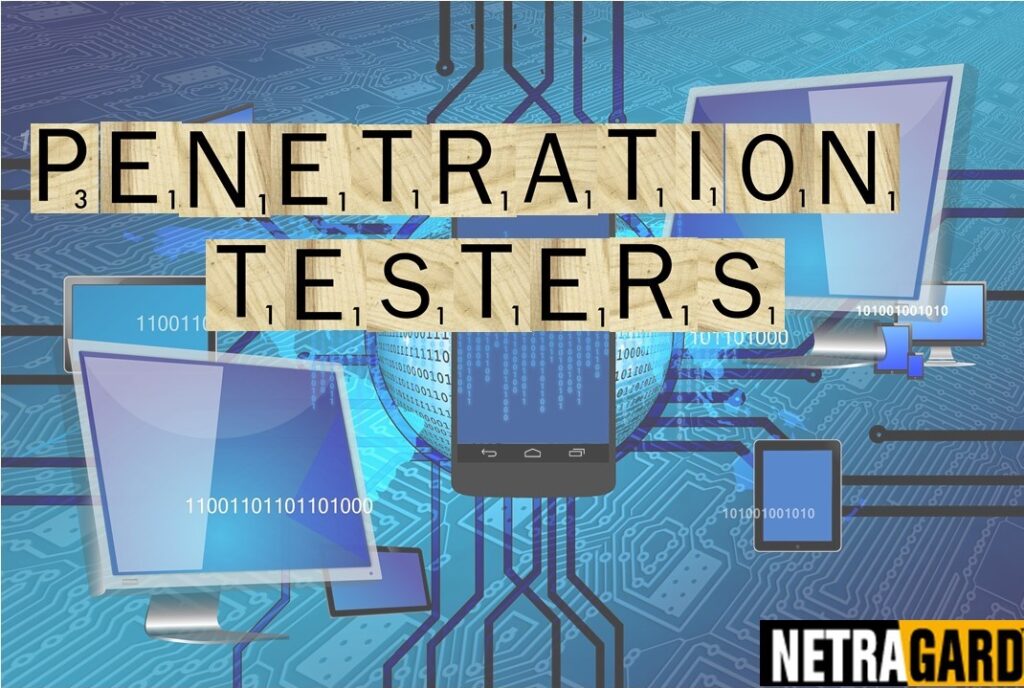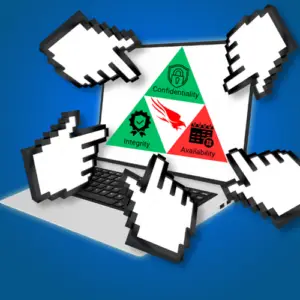What Does A Penetration Tester Do?
Penetration testers are one of the most sought-after roles in the cybersecurity field. However, there are a lot of misconceptions about what a penetration tester actually does from day to day. It’s important to understand what a penetration tester actually does. Whether from the side of an aspiring penetration tester or someone looking to bring one in to assess a company’s security.
A Day in the Life of a Penetration Tester
Penetration testers assess the security of an organization’s systems via a combination of automated and hands-on testing. By using the same tools and techniques as a real attacker, a pentester provides a realistic assessment of an organization’s exposure to cyber threats and the vulnerabilities most likely to be exploited by an attacker.
Pentesters have a variety of different duties, and a typical day may contain a mix or a focused effort in a particular area. These are some of the core tasks that a penetration tester performs.
Planning (and more planning)
Penetration tests are not free-for-alls where the tester throws everything that they have at a target system. Such an attack would pose a significant threat to the stability of the customer’s systems and their ability to continue operating during the engagement.
Often, pentests are targeted exercises in which the customer and tester agree on the scope of the assessment, allowable tools and techniques, and other rules of engagement. All of these terms must be worked out and agreed upon before the testing can begin.
Assessment
When most people think of pentesting, this is what they think of. After planning is complete and all of the agreements are signed, the tester performs their evaluation of an organization’s systems.
A pentest is designed to emulate a real-world attack, so pentesters move through many of the same attack stages as a true cybercriminal. These include the following:
- Reconnaissance: Learning about the target and identifying potential avenues of attack.
- Scanning: Port scanning and vulnerability scanning are automated processes that help identify potential vulnerabilities for exploitation.
- Gaining Access: After identifying a vulnerability, the tester exploits it to gain access. This could include exploiting a vulnerability, sending a phishing email, or other tactics.
- Maintaining Access: Pentesters and attackers rarely immediately gain the access that they need for an attack.
- Achieving Objectives: Pentests commonly have predefined objectives to demonstrate success, such as planting a flag on a particular server. Once the pentester has established a foothold, they can work to achieve these objectives.
During the course of a pentest, a pentester may undergo multiple iterations of these stages. For example, an initial attempt at exploitation may fail, making additional reconnaissance necessary, or the tester’s initial foothold may lack access to the target system, forcing another attempt.
Reporting and Presenting
Penetration tests are a service provided to a customer to help identify vulnerabilities in the customer’s environment. If a pentester performs an assessment but doesn’t communicate the results clearly to the customer, then the assessment was a failure.
The reporting stage of an assessment involves the pentester describing what they did, what they found, and the implications of these findings. A penetration test always involves a written report, but commonly also involves a live presentation to the customer describing the findings.
Reporting is the most important stage of the pentest, so a tester will commonly spend significant time during and after the assessment creating and presenting the report.
Research and Development
A penetration test should provide a realistic simulation of a real cyberattack against an organization. However, the cyber threat landscape is constantly evolving as new tools and techniques are developed and used in real-world attacks.
A penetration tester will need to perform frequent research, training, and development to keep their skills up-to-date. Doing so periodically ensures that they are capable of simulating the latest types of attacks.
Reality of Pen Testing
A penetration tester performs a great deal of work before, during, and after the actual assessment. They conduct tests and purposefully, attempt to exploit existing computer systems and software to detect and correct system weaknesses. Once completed, the test and findings are carefully documented in a report which is provided to the client.
Interested in penetration testing? Check out Netragard’s competitive benefits and open positions.
Penetration testing is the best way for organizations to measure their cyber risk exposure and identify potential vulnerabilities before they can be exploited. For more information or to schedule your organization’s next pentest, contact us.






